AnalyticsBreaking News
NRC: The Right to Appeal
“But whatever you do, do it by July 31. A day earlier than July 31 but not a day later.”- SC
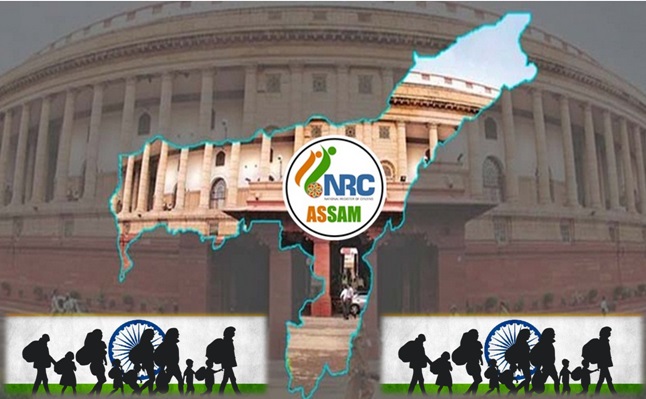

–Dharmananda Deb, Advocate–
June 5: The deadline for finalization of the updation of National Register of Citizens, 1951 in Assam is July 31. Very recently, in W.P.(C) 274 of 2009, the Supreme Court observed that there is a deadline. But do not cut short and just complete the process only to complete it. Merely disposing of 70% claims till today is not good unless the disposal is properly done.
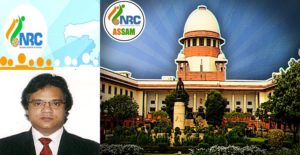
On the midnight of December 31st, 2017, Part Draft NRC was released and subsequently on July 30th, 2018, the Complete Draft NRC was released. 2, 89, 83,677 persons were found eligible out of 3, 29, 91,384 applicants in the final draft of the NRC and leaving a total of 40, 70,707 as ineligible for inclusion. Out of the aforesaid 40, 70,707 names, 37, 59,630 names were rejected and 2, 48,077 names were kept on hold. Those left out of the complete draft were given a chance to file claims for their inclusion in the final NRC. Of around 40 lakh applicants, who were not included in the complete draft, around 36.2 lakh have filed claims for their inclusion in the final NRC. Around two lakh objections were also filed against inclusion of “ineligible” persons in the complete draft. Currently, the hearing of the claims and objections and biometric enrolment are going on, targeted to be completed by June 22.
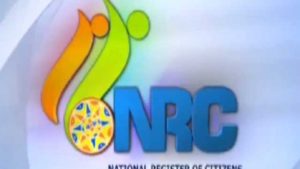
With roughly just a month left before the deadline hits, the Court delivered a crucial judgment on the right to appeal. Previously, if you had been excluded from the NRC, it was unclear whether you could appeal your exclusion to the Foreigners Tribunal . On 17 May 2019, the Supreme Court held that orders by the Tribunal prevail over orders by the government to include/exclude names from the NRC. The court not only rejected petitioners’ plea to be allowed the right to appeal against the opinions of the Foreigners’ Tribunal if their names also appeared in the citizenship register, it also curiously, ignored the findings of a coordinate bench of the apex court in a similar matter that had given primacy to the NRC.
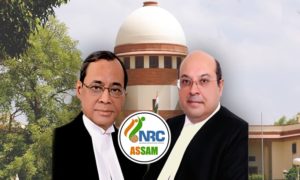
Analysis of the much-awaited Judgment of the Supreme Court in a batch of matters led by Abdul Kuddus Vs. Union of India.
The brief story of the case is that an intensive revision of electoral roll was carried out in 1997 in respect of Morigaon constituency, Assam. During verification of nationality, one Abdul Kuddus, S/O Abdul Kadir, a resident of Vill Morimusalmangaon, P.S & Dist. Morigaon, Assam could not produce any document in support of his Indian Nationality. So, the local Verification officer had submitted report to the Electoral Registration Officer suspecting Abdul Kuddus to be a foreigner.
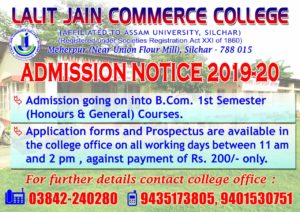
On basis of such report, Electoral Registration Officer forwarded the matter to the superintendent of Police (Border), Morigaon for making a reference under the IMDT Act,1983.Thereafter, reference was made to the IMDT, Nagaon suspecting Abdul Kuddus to be an illegal migrant i.e. foreigner who had unauthorizedly entered into India after 25/03/1971. After the IMDT Act was declared unconstitutional by the Supreme Court with the further direction that the references pending before the Tribunals constituted under the IMDT Act should be transferred to the Foreigners Tribunal constituted under Foreigners Act,1946 read with the Foreigners’ (Tribunals) Order, 1964 and after creation of additional Tribunals, it was assigned to the Foreigners’ Tribunal No.3, Morigaon (Tribunal) for opinion.
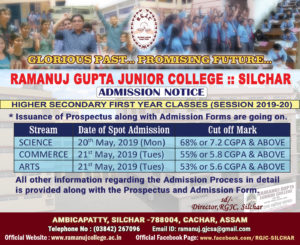
Accordingly, in the year 2015 it was re-registered as Case No. F.T.(D) case No.19 of 2015 by the Foreigner’s Tribunal No.3, Morigaon . Notice issued by the Tribunal was served upon the Abdul Kuddus where after, Kuddus had entered appearance before the Tribunal and filed written statement along with copies of certain documents denying the allegation that he was a foreigner by claiming to be a citizen of India. He also adduced evidence, both oral and documentary.
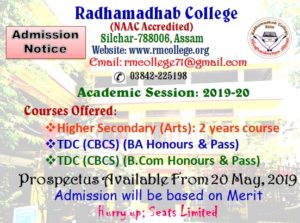
After hearing the matter, Foreigner’s Tribunal No.3, Morigaon passed the order dated 30/01/2016 answering the reference in favour of the State by declaring the Abdul Kuddus to be a foreigner who had illegally entered into India (Assam) from the specified territory i.e., Bangladesh on or after 25.03.1971.

On being aggrieved with the opinion of the foreigners tribunal, Abdul Kuddus has filed a Writ Petition before the Gauhati High Court being W.P.(C) No.1073 of 2016. During this writ petition hearing, Kuddus’ lawyers argued before the court that discrepancies in the name and age in the voter list should not be given undue weightage as because the entries were made by the Electoral Authorities and not by the proceedee. Tribunal had adopted a too technical approach in answering the reference. For minor discrepancies in the names and age of persons in the voters’ list, Tribunal had disbelieved the entire version of the Abdul Kuddus. Referring to a judgment of this Court in Abdul Matali @ Mataleb (Md.) Vs. Union of India, reported in 2015 (2) GLT 617, he submits that such discrepancies should not be given undue weightage by the Tribunal to discard the evidence of the petitioner.

However, the Hon`ble Gauhati High Court observed that this aspect of the matter was gone into by Gauhati High Court in the case of Basiron Bibi -versus- Union Of India, wherein it was held as under :-
“….The voter’s lists were adduced as evidence by the petitioner herself to prove her case that she was not a foreigner but a citizen of India. Petitioner cannot insist that only that portions of the Voter’s Lists which are in her favour should be accepted and those portions going against her should be over-looked. This is not how a document put forward as piece against her should be over-looked. This is not how a document put forward as piece of evidence should be examined. The document has to be appreciated as whole.”

On 07/05/2018, the Hon`ble Justice Ujjal Bhuyan and Hon`ble Justice Nelson Sailo also observed that draft voter lists are notified for objections and corrections before finalizations. Therefore, such contention of the petitioner has no substance at all. So, they do not find any reason to interfere with the impugned order passed by the Foreigner’s Tribunal No.3, Morigaon and for which writ petition of Abdul Kuddus also dismissed.

On being dissatisfied with the order of the Hon`ble Gauhati High Court, Abdul Kuddus preferred a Special Leave Petition before the Supreme Court. On February 18, 2019, a Supreme Court bench comprising the Chief Justice of India (CJI), Ranjan Gogoi and Justice Sanjiv Khanna, when informed that Kuddus’ name also appeared in the final draft of the NRC for Assam along with his family, directed the case to be listed before the bench hearing the main NRC issue.
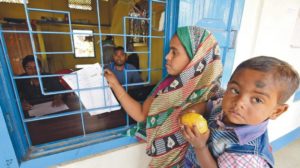
The reason for placing Kuddus’ petition before the NRC bench was because the Schedule to the Citizenship (Registration of Citizens and Issue of National Identity Cards) Rules, 2003 stipulated that a person who had been declared an illegal immigrant or foreigner by the competent authority would not be included in the consolidated list or the final National Register of Citizens set to be published by July 30, 2019. As a result of this conflict between the ongoing NRC process and the opinions of the Foreigners’ Tribunal, the court perhaps had initially thought it fit to list the matters before the bench that was already overseeing the updating of the citizenship register.
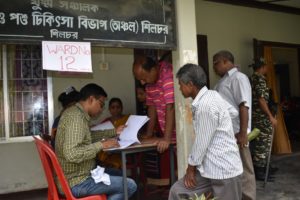
Subsequently, 15 separate special leave petitions (SLP) came up before the Supreme Court involving the identical issue; each of the petitioners was persons who had been declared foreigners and had found either their own names or that of their blood relatives in the draft NRC. These were tagged along with Abdul Kuddus.
The common thread running through all the Special Leave Petitions was that the findings of the Foreigners’ Tribunal with regard to the petitioners or their relatives were being used to assail their citizenship claims even though their names were in the NRC.

Kuddus’ lawyers argued before the Supreme Court that a person, who had been declared a foreigner by a Foreigners’ Tribunal and also found their name in the citizenship register, should be allowed to file an appeal as per Paragraph 8 of the Schedule to the 2003 Rules. Paragraph 8 lays down the provision of an appeal for persons “Any person, not satisfied with the outcome of the decisions of the claims and objections may prefer Appeal, before the Tribunal within a period of sixty days from the date of such order, and on the disposal of appeal by the Tribunals the names shall be included or deleted”.
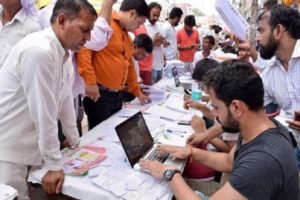
Kuddus’ lawyers also argued that the decision of the Foreigners’ Tribunal, being merely a summary opinion, was more in the nature of an executive order and could not, therefore, be considered a decision or judgment for the purpose of Paragraph 3(2) of the Schedule to the 2003 Rules. As a result, a matter that had been disposed of by the tribunal could not be regarded as one that had already been adjudicated upon (res judicata), precluding the court from hearing the same issue again.
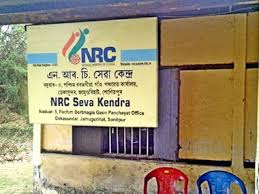
When posed with the question of there is no provision for an appellate authority under the Foreigners (Tribunals) Orders 1964, it was also suggested that the Supreme Court create an appellate forum by exercising its jurisdiction under Article 142 of the Constitution of India – that power being wide enough to be invoked in order to do complete justice; in this case an opportunity to appeal against the determination by the Foreigners’ Tribunal where the names of such persons or their close relatives had been found in the NRC.
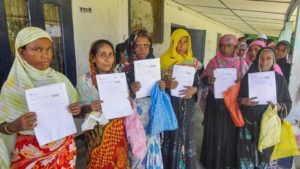 The state of Assam and the Government of India for their part claimed that under the provisions of paragraph 3(2) of the Schedule to the 2003 Rules, the opinion given by the Foreigners’ Tribunal would prevail, notwithstanding the executive exercise of preparing the NRC. This was countered with the argument that persons whose names were included in the register but were subsequently deleted on the grounds that they were foreigners had the right to appeal to an appropriate forum against their exclusion.
The state of Assam and the Government of India for their part claimed that under the provisions of paragraph 3(2) of the Schedule to the 2003 Rules, the opinion given by the Foreigners’ Tribunal would prevail, notwithstanding the executive exercise of preparing the NRC. This was countered with the argument that persons whose names were included in the register but were subsequently deleted on the grounds that they were foreigners had the right to appeal to an appropriate forum against their exclusion.
VERDICT
On 17 May 2019, Justice Sanjiv Khanna authored the judgment on behalf of Chief Justice Ranjan Gogoi and Justice Deepak Gupta. The Bench was ruling on three prominent issues:
- Is the Foreigners Tribunal ‘competent authority’to declare someone a foreigner, under paragraph 3 of the Schedule to the Citizenship(Registration of Citizens &Issue of National Identity Card) Rules, 2003 ?
- Does res-judicata apply to orders by the Foreigners Tribunal? Meaning, once you have been declared a foreigner by the Tribunal, are you barred from approaching it a second time?
- Should the Supreme Court create an appellate forum, exercise its power under Article 142 of the Indian Constitution, for those appealing exclusion from the NRC?
![]()
On the first question, the Court rejected their argument, opined that the Tribunal is the competent authority under the parent Act of the 2003 Rules. The Court invoked Section 6A of the Citizenship Act, 1955, which states that the Tribunal is competent to declare someone a foreigner. Further, the Court stated that the appellants had failed to establish who an alternate competent authority could be. Hence, it declared that orders of the Tribunal are “quasi-judicial” and not merely executive.

On the second question, the Court held that the Tribunal’s orders must operate res-judicata. Citing Shirmati Ujjambai, the Court held that once the Tribunal decides whether an individual is a foreigner (or not), said individual can no longer approach the Tribunal. However, the Court did note one exception: in instances of contradictory orders by the Tribunal between close relatives, res-judicata will not apply.

On the third question, the Court held that it would not establish an appellate forum using its powers under Article 142. Adhering to the separation of powers, it stated that creating an appellate forum would “entrench upon the field of legislation”. It emphasized that the Court was only justified to exercise such powers, when there was legislative silence on an issue (see P. Ramachandra Rao and Pravasi Bhalai Sangathan).
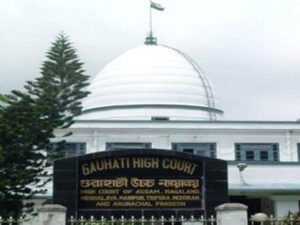
As a result of this judgment, those excluded from the NRC may only file an appeal before the Foreigners Tribunal within a period of sixty days. But if they have previously already been declared a foreigner by the Tribunal, their only option is to file a fresh writ petition before the High Court of Gauhati.




